Holy Envy: Finding God in the Faith of Others is another inspiring book by Barbara Brown Taylor. You may recall, she is an Episcopal priest who, after years as a pastor, moved into the world of Academia beginning with Piedmont University in Demorest, Georgia. There for years she taught a course in world religions. She reminded her students that by taking them on field trips to other places of worship, she was not trying to convert them from their own religious beliefs. On the contrary, by studying other believers she hoped they might come to a new understanding of their own faith.
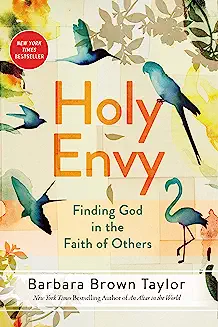
She reminded her students that the United States is a pluralistic society. She added that it always has been. Muslims were in this country by 1528, Jews in 1654, Hindus by 1851, and Buddhists in the mid 1880s. In 1860, for example, 10% of the population of California was Chinese. The restrictive immigration law of 1924 was an attempt by Congress to limit or deny immigration to certain groups of people “to preserve the ideal of American homogeneity” (which didn’t really exist!) American homogeneity in 1924 usually meant white, Christian, and of northern or western European descent . This law, based on the 1890 census, established a quota system for immigration. It also essentially excluded immigrants from Asia (except from the Philippines) and severely limited immigrants from southern and eastern Europe (where my grandparents came from in about 1905). The 1924 law was modified over the years and dramatically changed by the Immigration Act of 1965, signed by President Lyndon Johnson at the foot of the Statue of Liberty. Currently, the U.S. (and, indeed, many other countries in the world) are more pluralistic than ever. Taylor says, “Religious illiteracy is a luxury we cannot afford.”
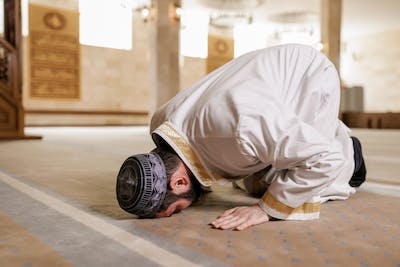
The phrase “holy envy” can be traced back to a Biblical scholar named Krister Stendahl, a Swede who taught at Yale and eventually became Bishop of Stockholm. In 1985 he became aware of the mounting opposition to a new Mormon temple being built in his diocese. He attempted to defuse this tension by proposing three rules of religious understanding:
- When trying to understand another religion, you should ask the adherents of that religion and not its enemies.
- Don’t compare your best to their worst.
- Leave room for holy envy. (In other words, is there anything you envy about this other religion—something its adherents believe, have, or do that you would wish for your own faith? Or, can you find God in the faith of others?)

Sometimes this holy envy changed the way students viewed the practice of their own religion. For example, when the class learned that Muslims pray five times a day, many of her students were impressed. One Protestant student said she wanted to incorporate more regular “talking with God” into her daily life. When they learned about the Muslim Ramadan, a month of fasting, prayer, and community, one student said he never paid much attention to the observance of Lent in his Catholic tradition, but now he wanted to.
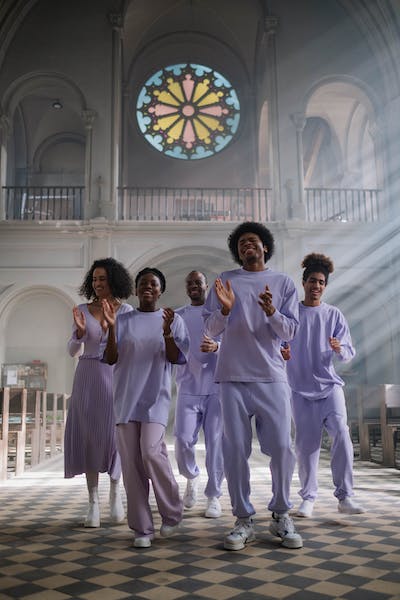
Taylor shares some of the things she herself envies in other religions. She envies Buddhism’s stress on “human ability and responsibility.” Buddhism does not talk about God. And Buddha himself is not God. As he lay dying, his followers asked how they could possibly go on without him? Buddha replied, “Be lamps unto yourselves. Rely on yourselves, and do not rely on external help. Hold fast to the truth as a lamp.” This reminded Taylor of Jesus’ words: “You are the light of the world.”
She also found it intriguing that neither Judaism nor Islam has a doctrine of original sin. She pondered how the absence of this doctrine impacted Judaism and Islam—and how the presence of this doctrine impacted her own Christian faith. She also found it striking that Judaism is not interested in making converts. What a contrast to some other faiths. For even a cursory reading of history is filled with so-called “religious wars” where one religious group resorted to violence to convert (or destroy!) those who did not share their religious beliefs.
I found chapter 7, “The Shadow-Bearers” to be one of the best. As you may recall, 9-11 occurred on a Tuesday. Taylor had already lined up her class field trip to a local mosque for Friday. Sixteen students had signed up to go. But after 9-11, eight dropped out. One said her father told her to drop the course “before you get recruited to ISIS.” Taylor quotes from Jonathan Sacks book, Not in My Name, who says it is not our religion that makes us violent. “It is our penchant toward violence that gives rise to our religious impulse.” He believes humans are born with two sets of instincts: “altruism toward those in our own group and aggression toward others.” We develop psychological mechanisms such as projection and scapegoating that allows us to assign goodness to our group and badness to the other group. Says Taylor, “This relieves us from having to deal with the badness in our group; it also frees us to believe that our violence against the other group is essentially altruistic.”
I agree with Fr. James Martin’s assessment of Taylor’s book: “By turns inspiring, enchanting, and provocative, Taylor reminds us that God is bigger than any one religion. Prepare to be surprised and, best of all, come to know God in a new way.” Let me conclude with Taylor’s description of what happened during one the her class field trips to a local Mosque:
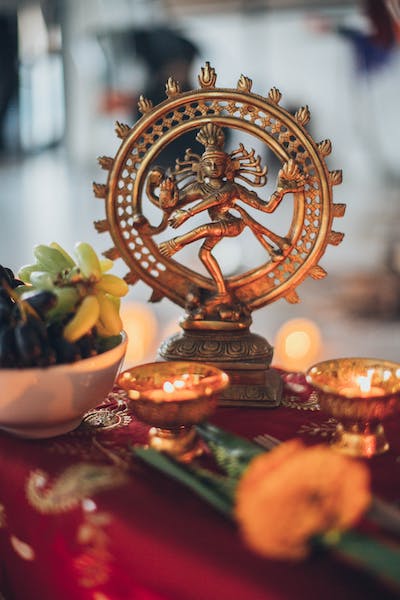
The imam ended his meeting with the students by saying, “Our deepest desire is not that you become Muslim, but that you become the best Christian, the best Jew, the best person you can be. In the name of God, the Most Gracious, the Most Merciful. Thank you for coming.” Says Taylor, “Then he was gone, leaving me with a fresh case of holy envy.”
For reflection:
Did anything in this reflection stand out for you? Do you know why?
Have you ever had a conversation with someone not of your faith to learn more about their faith? If so, describe that experience.
Have you taken a course, read books, attended talks, or listened to podcasts on world religions? If so, what did you learn?
Have you ever visited a place of worship other than that of your own faith? What was that experience like for you?
PS: As I’ve mentioned before, I realize many of you are no longer receiving my blog even though you are subscribers. I’ve been told that I have too many subscribers for the current system to deal with. The IT people are looking for a solution. Meanwhile, my blog is being updated with a new design. In fact, this week I am zooming with the artist who is offering me several designs to choose from. If you are no longer receiving my blog automatically every Monday, just search “Melannie Svoboda blog” and my blog should come up for you. Thank you for your patience.
For our video today, I chose a reading of Psalm 23 in Hebrew with an English translation. Most scholars say Jesus spoke Aramaic and Hebrew and perhaps some Greek. I love listening to the reciting of this beautiful psalm in perhaps the very words Jesus would have prayed. The pictures that accompany this reading are lovely too.
I invite you to respond below to anything in today’s reflection: words, pictures, video, reflection questions. I always enjoy hearing from you! (And my readers do too!)

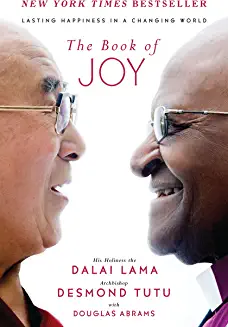
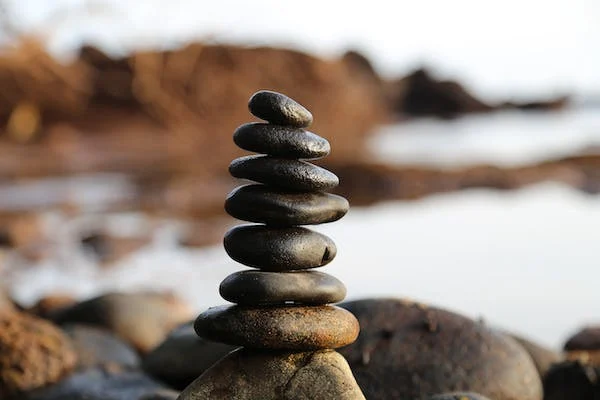
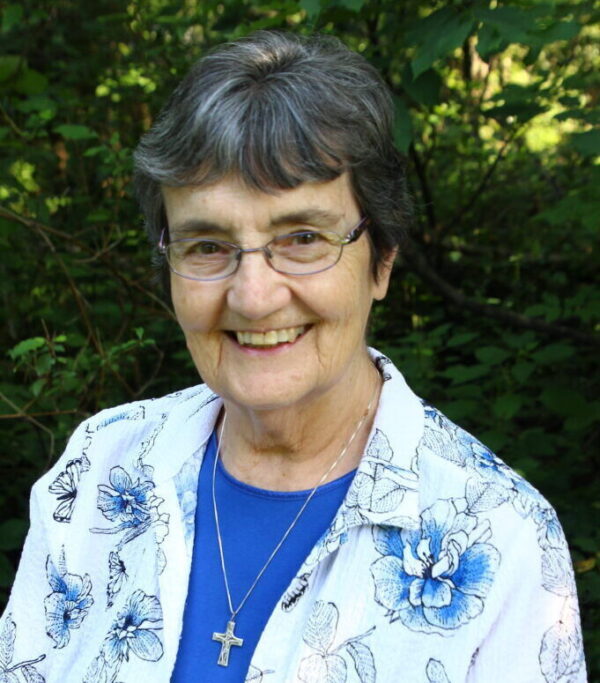

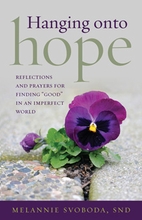

13 Responses
This is the most interesting article. I’ll have to purchase her book. We “had” Muslins living across the street from us. They were very nice.
One fall my husband and i were raking a huge amount of leaves, and 2 of their children came over and helped us finish. I was sooo impressed.
They have moved away, and I really miss them.
Thanks sooo much for your article.
You are the best!!!
And thank you, Sue, for the experience you shared with us. You’re the best too! Melannie
Good morning, Sr. Melannie…
First time responding to your bold via iPhone. Hope it works! Also, sending this from the great state of Maine! Loved this piece. I think other religions do what your blog suggests: make us strive to be better at ours. And isn’t Jonathan Sachs an atheist? Everyone has something to teach us!
John, Thank you for your comment via your iPhone–and from Maine! (I’ve been to Maine several times usually giving talks/retreats. But once I tacked on a few days and an SND friend and I enjoyed some of the wonders and beauty of this state!) … THIS Jonathan Sacks in RABBI LORD Lord Jonathan Sacks! He wrote and taught extensively on religious matters and won too many awards to list!… Thanks for writing! Melannie
This is truly a thought-provoking book. So many things struck me as I read it. One of my favorite images: in the chapter on “Divine Diversity,” she talks about all these religions as wells from which we draw the water that sustains us, and they are all fed by that “same great underground river.” Maybe if we could ponder and understand and appreciate what this idea is conveying, we could have peace in our world.
Thank you, Rose, for drawing our attention to that image of the “same great underground river.” Yes, if only we could ponder that reality more… Thanks again for writing! Melannie
Sr Melanie, I am subscribed but do not receive your email BUT every week I Google your name and find you… your blog is worth looking for. Thank you for another thought provoking article.
We all have so much to share and to learn.
And thank you for your response, Linda. I couldn’t agree with you more: We have so much to share and to learn.” Melannie
I loved this mind expanding and faith broadening post! What a beautiful shift in thinking it inspires. And the idea of the same underground river feeding all of our faiths, helps creates a wonderful sense of unity. There have always been aspects of other faiths that I have appreciated. And now I will more readily embrace this holy envy. God’s blessings on you, Sister, for the many ways you touch our hearts and help us grow.
Amy, Yes, Barbara Brown Taylor’s book offered me “a beautiful shift in thinking.” I too liked the image of the “underground river feeding all faiths.” Thank you for your comment, Amy! Melannie
When my brother was in college, a Catholic Jesuit college, he had a course that covered the major world religions. I read the textbook he had used and found much to appreciate in the other religions. More recently my friend who is Catholic encouraged me to learn something about the concept of compassion in Buddhism, and it has helped me avoid feeling sorry for myself when I have difficulties and to consider and pray for the many others who have the same or worse sufferings.
I enjoy your blog!
Ruth Ann, How wonderful that you read your brother’s textbook to learn about the major world religions. How curious you were! And yes, Taylor talks of her love and appreciation for Buddhism a number of times in this book. Thank you for sharing these two personal experiences with us! (And I’m glad you enjoy this blog… Little comments like yours encourage me to keep writing this every week. Thank you!) Melannie
Dear Sister
The reading of the poem in another language was beautiful
Thank you